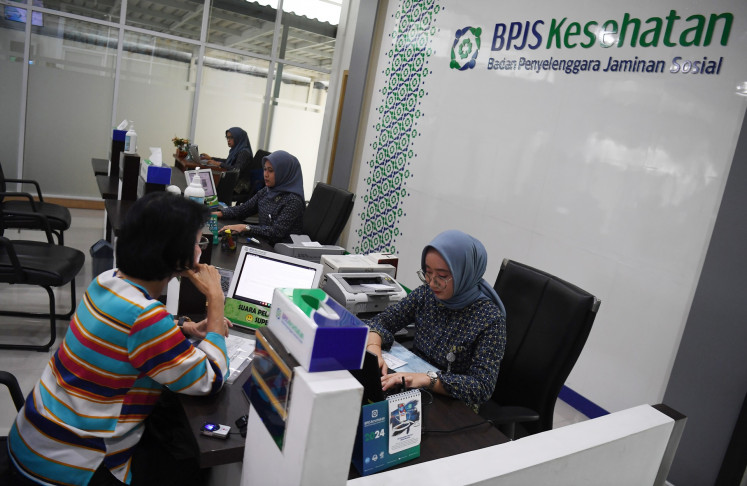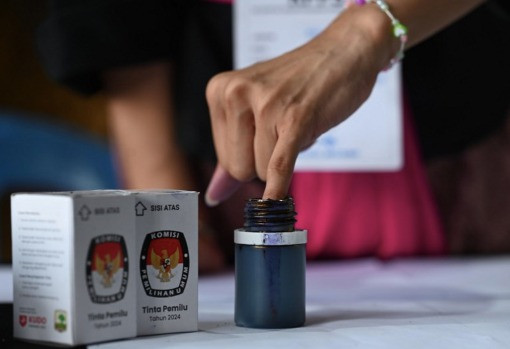Trust me, I'm a police officer
Policing in two of Indonesia's most conflict-prone areas, Aceh and Papua, is not easy
Change Size

Policing in two of Indonesia's most conflict-prone areas, Aceh and Papua, is not easy.
But the provinces' top cops say they are making progress - that the trust between them and their communities is increasing.
People are more willing to report crime now and it's believed a lot of that has to do with the Police Reform Act and the move away from military-style policing to community policing.
Senior officers see community policing as the way of the future for Indonesia's police.
To help them realize this future, Papuan and Acehnese police have been working closely with New Zealand's police, who have been training them in community policing.
In New Zealand, police have been separated from the military for 123 years.
Community policing is a policing strategy based on the notion that community interaction and support can help control crime and reduce fear, with community members helping to identify suspects, detain vandals and bring problems to the attention of police.
Chief of police in Papua, Inspector General FX Bagus Ekodanto, expressed appreciation for having the New Zealand Police on board, saying the training, which brought Papuan police officers and their community together for open discussions, had been "very useful".
Bagus, who traveled to New Zealand several years ago, said he was impressed with how the New Zealand Police dealt with their indigenous people, the Maoris.
"In Papua, we have our own customs and traditions," he said.
"So because of the similarities between our cultures - the Maoris and Papuans - I think we need to learn how to adopt the approaches of the New Zealand Police."
However, he maintained there were still many differences.
For one thing, New Zealand Police are unarmed - something Bagus would like to see happen in Indonesia in the future.
"I know the level of education is higher in New Zealand than in Indonesia, so in the future if we can increase the level of education here the police may not have to be armed," he said.
"Now the situation is different, so we are still armed."
Papuan police have come under fire from Amnesty International, which accuses them of using excessive force to disperse demonstrations, such as opening fire on protestors.
However, Bagus said, "in this reform era" they did try to apply the latest "good practice policing" when dealing with violent situations.
"In the past we would have resorted straight to violence. Now we are only equipped with batons or shields, not bullets and weapons."
A several-step process was followed when dealing with demonstrators, he explained.
First, female police officers were sent in to try and talk with protestors. If that failed, negotiators went in, then troops with shields and batons, and then a water cannon if things had still not calmed down.
"In the past, yes, we used violence, but now things have changed," Bagus said. "We have a new paradigm to deal with situations."
And what's more, they are seeing results - police reform is working.
"People have learned they can trust the police. They used to be scared, now they are more open and not scared to come to the police."
He said he believed community satisfaction with the police had increased, adding "But it's still an ongoing process."
For some that process has gone on far too long.
According to Neta S. Pane, head of the Indonesian Police Watch presidium, even though high-ranking police officers are enforcing reforms, the message is not being passed on to their subordinates.
"Those declarations stop at high officials, while those in the lower ranks of the police hierarchy, closer to the public, still misuse their powers," Neta told a discussion on police performance in May.
Recent events have demonstrated the risk for police to become involved in criminal activity. Former South Jakarta Police chief Sr. Comr. Wiliardi Wizar was arrested recently for his alleged involvement in the high-profile murder of businessman Nasruddin Zulkarnaen.
In a two-month period at the end of last year, more than 750 officers were caught accepting bribes, 440 were charged with disciplinary action, 230 were reprimanded for breaching their duties and around 40 others engaged in criminal acts.
Asia Foundation Law program coordinator Leopold Sudaryono said it would be some years yet until the full effect of the reform was felt.
Reform is still in the first phase, implementing structures and policies, he said, and very little thought had yet been given to improving the public perception of the police.
Studies have shown that only around 37 percent of Indonesians believe there has been an improvement in police performance since the reform began in 1998.
But Leo said the police were now in a better position than previously to provide a better service because their budget had been increased.
The problem remained in the fact that the police were left to supervise themselves - there was no external body to oversee them, he said.
And despite the welcome overall budget increase, allocation remains a huge problem, he added.
"On the ground they are not well funded to respond to the community's needs," he said. "They only get one liter of gas a day to do their job. That's why there is still so much corruption."
Wages are also low, with many police officers struggling to feed their own families.
Leo also supported community policing as the "way up", but said it would require a completely different set of skills from the police.
"We are now hitting a thicker wall of police reform. They've worked hard to implement the policies, now they must implement it on the ground," he said.
"It won't be easy, because the culture is still militaristic."
There are still many cases of police using violence to obtain information out of people - now they are just more careful not to leave bruises, Leo said.
These cases were most common in villages, where low-ranking officers are stationed, he said. These officers have little in the way of resources, "so their only way to extract information is to use violence".
According to Leo, local governments' use of the public order police (Satpol PP) to intimidate people is also not helping police reform, as "they are public enemy number one".
Many people spoken to by The Jakarta Post freely admitted to bribing police officers.
"It's easier to pay the traffic fine than go through the court process and have to take time off work," one man admitted.
Another man said he had found "fat male police officers" were the easiest to bribe and women the hardest.
But foreign countries, including New Zealand, are working hard to help change these behaviors.
Last week, 70 police trainers from all over the country gathered in Bogor for a "train the trainer" session funded by the New Zealand government.
Two New Zealand police officers, Inspector Anaru George and Senior Constable Shayne Broughton, flew in to teach the trainers about building relationships in their communities and problem solving.
Participants were involved in activities that demonstrated the importance of building up relationships and trust with their communities. They learned how a police force that acted in isolation was ineffective and that they had to have the community engaged if they wanted to make any real progress.
They also learned that they had to follow through on any promises they made, or the trust they had built would erode.
The officers will take what they learned back to their regions and teach their subordinates about community policing.
New Zealand senior police liaison officer Superintendent Athol Soper, who has been based in Jakarta for the past four years, said the New Zealand police first came to Indonesia to help with counter-terrorism.
When it became evident that good progress had been made there, they moved toward capacity building and community policing, mainly in Aceh and Papua, he said.
"In the four years I have been here, I have seen a tremendous improvement in police reform and they are well on track," Soper said.
"They have made gradual progress, but it's transparent and obvious progress."
And it wasn't only the Indonesian Police learning something.
"Indonesians have got a lot of very professional people, some aspects of which we can learn a lot from," he said.
Next month, four Acehnese criminal investigators will head to Auckland, New Zealand, to see firsthand how New Zealand detectives work their cases.
Chief of narcotics for Aceh Police, Senior Superintendent Ali Gohardi, went to New Zealand in 2007 on a similar trip for community policing.
He said the skills he learned there had proved very helpful, especially in a post-conflict area such as Aceh.
"It's more difficult to police here than other areas. Most of the community is still traumatized by 32 years of war. They don't have that trust," he said.
"Over the next two to three years we need to build that trust up- get them to support our job as police.
"In Aceh some people respect us and some don't. There are still some elements that like to disrupt the police."
But Ali said the situation had been improving, with increased reporting of crime as well as of police corruption and brutality.
Seventeen Acehnese police officers were arrested and disciplined last year for drug offences.
Ali sees community policing as the way forward, not just in Aceh but for the whole country, saying that "we need to change our culture".
Aceh's chief of police Inspector General Adityawarman agreed.
"Police need to be proactive. We need a greater police presence on the ground talking to people," he said.
Aditya said policing should start with the community, by going to people to identify the problems.
"From those kinds of acts we can extract information from people. We will manage to solve many cases by involving the community," he said.
"But we need good appreciation from society for that to work."
And Aceh, he said, was much more difficult to police than other provinces because of its past trauma.
Community policing is a good way to rebuild their trust and make them less scared of authorities, he said.
But for some, community policing and reform is coming too slowly.
Many believe true reform will not come until the police are fully independent.
The writer is an intern at The Jakarta Post.









